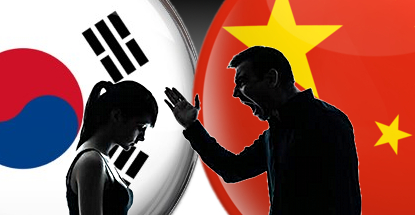 Shares in South Korean casino operators took a tumble on Thursday following negative comments in Chinese media by government officials. South Korea’s Jeju island was derisively referred to as the “new haven” for Chinese gamblers because of its proximity and the number of casinos that call the island home. Given the effect of Beijing’s interest in what its citizens are doing in Macau, the unexpected criticism of South Korea spooked investors.
Shares in South Korean casino operators took a tumble on Thursday following negative comments in Chinese media by government officials. South Korea’s Jeju island was derisively referred to as the “new haven” for Chinese gamblers because of its proximity and the number of casinos that call the island home. Given the effect of Beijing’s interest in what its citizens are doing in Macau, the unexpected criticism of South Korea spooked investors.
Shares in Paradise Co., which operates five of the country’s 17 casinos and is building a new mega resort near Incheon as part of the Paradise Sega Sammy joint venture, fell over 12% on Thursday. In its most recent earnings report, Paradise said two-thirds of its gaming revenue came from Chinese high-rollers. Grand Korea Leisure (GKL), which operates three Seven Luck casinos, fell nearly 10% on Thursday. In April, GKL credited a minor dip in Chinese visitation for a 13% decline in its Q4 2013 table game turnover.
The Chinese media outlet quoted an official in Zhejiang Province saying local gamblers had developed a taste for Jeju’s casinos after the island began offering visa-free entry to Chinese tourists a few years back. The influx has not been entirely positive, with reports of unlucky gamblers turning to local loan-sharks to chase their losses, with predictable consequences.
A Chinese diplomat on Jeju told the paper that an “80% rule” applied to Chinese tourists on Jeju: 80% of the island’s tourists are Chinese, 80% of them gamble and 80% of them will lose money gambling. In July, four Chinese gamblers sued a Jeju casino after it refused to pay them winnings of KRW 1.1b (US $1.1m) after accusing the men of colluding with a dealer to cheat at baccarat.
On Wednesday, China’s Leisure and Cultural Services Department said the number of outbound Chinese tourists passed the 100m mark for the first time this year. South Korea still only attracts 6.6% of Chinese trips to other Asian nations, well behind Hong Kong (51%) and Macau (24%), suggesting plenty of room for future growth, assuming Beijing doesn’t take any steps to staunch the human flow.
For the first 11 months of 2014, the number of Chinese traveling to Korea and Japan has risen over 40% compared to the same period last year. Chinese tourists spent $74b on gambling during their visits abroad, ranking only behind the US in terms of gambling spending while traveling internationally.
